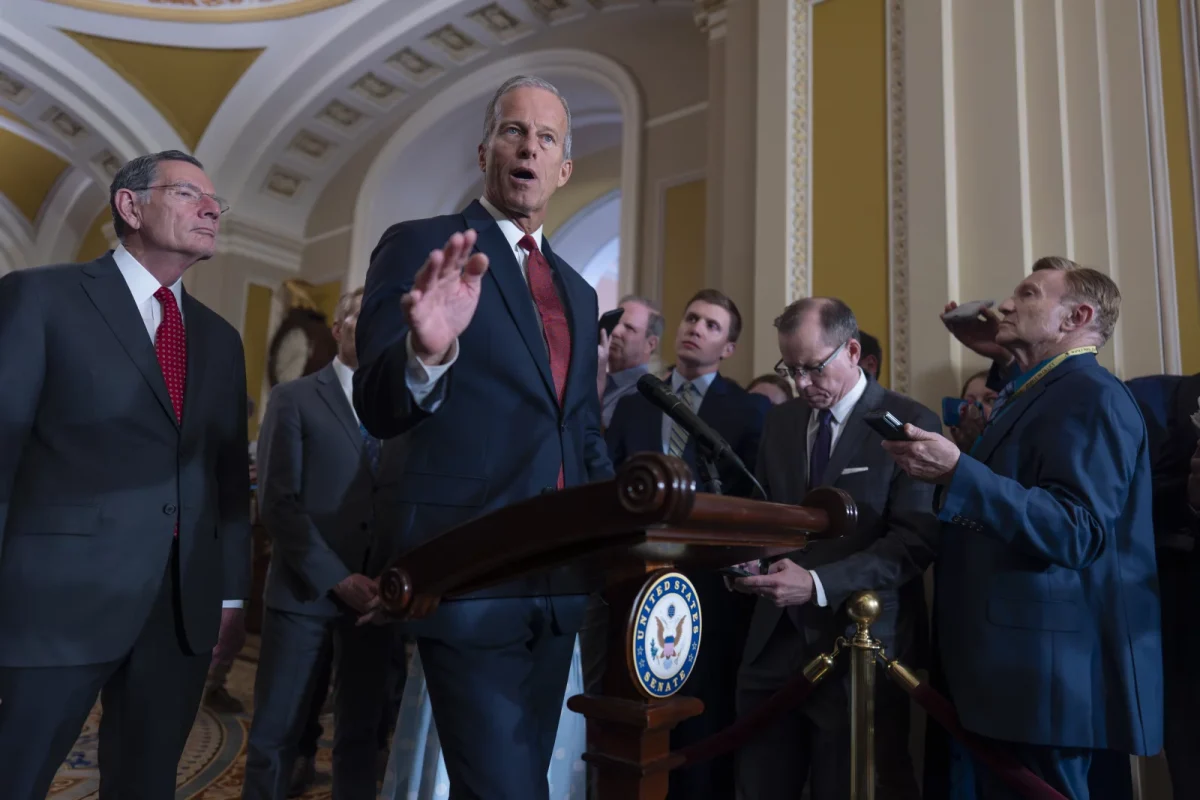After the House of Representatives voted to pass President Donald Trump’s “Big Beautiful Bill,” it now faces the approval of the Senate. Here are key takeaways from the bill.
According to the White House, the bill has completed four of the six stages of being passed through the Legislative branch before it can be signed by the President and put into order. The White House currently has a public tracker in which Americans can watch the bill being passed, with it showing that it is currently being debated in the Senate.
Called the “One Big Beautiful Act,” the bill received the approval of the House of Representatives on May 22, with 215 voted “Yea” in support of the bill. Those who voted “Nay” on the bill fell just short, with only 214 votes.
House Speaker Mike Johnson released a statement following the passing of the “One Big Beautiful Act.”
“Today, the House passed generational, nation-shaping legislation that reduces spending, permanently lowers taxes for families and job creators, secures the border, unleashes American energy dominance, restores peace through strength and makes government work more efficiently and effectively for all Americans,” said Johnson.
Many Republicans have praised the bill, especially for President Trump promising tax cuts that will be beneficial for Americans.
One of the biggest benefits that he has expressed is increasing paychecks for workers. The bill will increase take-home pay for workers by over $10,000, according to the President. In addition, there will be 1% tax cuts for Americans earning between $30,000 and $80,000 per year.
In addition, the bill also calls for no taxes on overtime pay or tips, and is looking to expand tax breaks for senior citizens.
Sen. Thom Tillis of North Carolina was one of the two Republicans who voted against the passing of the bill. He claims that the cuts in Medicaid would “result in tens of billions of dollars in lost funding for North Carolina, including our hospitals and rural communities.” After hearing the news, President Trump threatened to back potential primary challengers that Tillis may have to face in next year’s election.
Tillis has since announced that he will not be running for reelection next year, stating that he would rather choose to spend his time with his family rather than “navigating the political theatre and partisan gridlock in Washington.”
Many Democrats and State Officials are also worried about the effects that the bill could have on families.
On June 13, Michigan Gov. Gretchen Whitmer released a statement regarding the bill, voicing her concerns for how it will affect the Affordable Care Act (ACA)
Also known as “Obamacare,” the Act was signed into law by President Barack Obama and was focused on ensuring that millions of Americans are able to have affordable, high-quality healthcare. This expanded health insurance to Americans who could not afford it beforehand through programs like Medicaid and offered subsidies to help cover medical costs.
Whitmer warns that the bill will raise Michigan’s uninsured tax rate, kicking more that 120,000 Michiganders off their ACA Marketplace plans. Marketplace plans are online marketplaces that allow Americans to enroll and help receive financial assistance in receiving medical insurance. In total, nearly 11 million Americans are expected to lose medical care due to the cost increasing from the Bill.
Michigan currently has one of the lowest uninsured rates, with around 5.4%. With the Bill being introduced, many Michigan residents will face a harder time trying to receive Marketplace coverage.
Restrictions for Medicaid are also expected to grow. The bill is pushing for stricter and more frequent eligibility checks to ensure that those who are on Medicaid are either low-income or disabled.
However, the Senate has ruled that cutting federal funds to states who provide Medicaid to undocumented immigrants and restricting Medicaid from covering gender transition services goes against Senate orders.
Restrictions on food stamps are also expected to grow. Once a fully government-funded program, some states will now be expected to help cover the costs of the Supplemental Nutrition Assistance Program (SNAP).
Border Security and Immigration enforcement are expected to increase. For four years, more than $60 billion will be provided in funding U.S. Customs and Border Protection (CBP) as a way to increase efficiency. This will be put mostly towards physical barriers towards the southern and northern borders of the U.S., along with CBP facilities and CBP personnel.
Immigration and Customs Enforcement (ICE) is expected to receive $75 billion in funding as a way to increase immigration detention, removal and to help grow ICE personnel.
Protests have recently grown in response to the rise of ICE’s presence in communities across the nation. In Los Angeles, protests against the deportation of undocumented immigrants resulted in President Trump’s deployment of the National Guard.
After debates, the Senate will be up to voting on the bill. They hope to have a concise decision by July 4.









